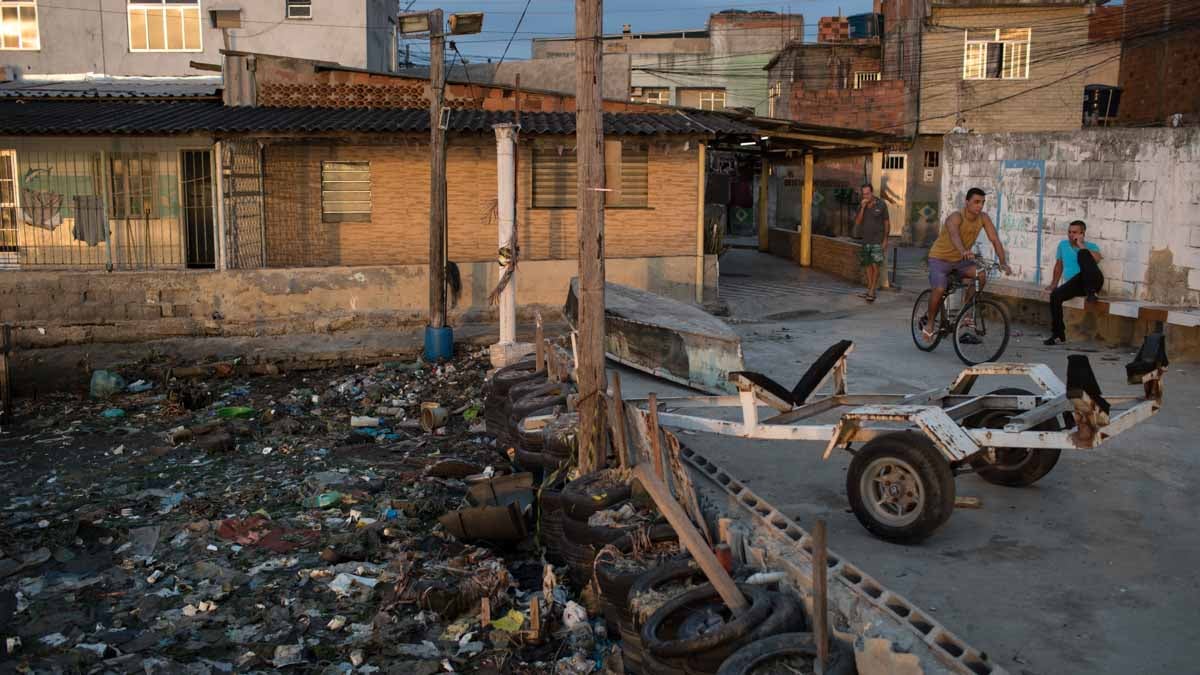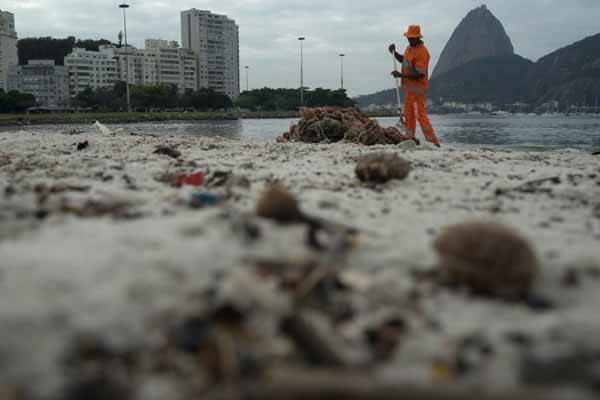What Zika and polluted waterways really mean for the Rio Olympics
Listen
Houses stand next to the heavily polluted shore of Guanabara Bay in Rio de Janeiro
There has been a lot of controversy leading up to 2016’s summer Olympic games – from an ever-growing fear of Zika outbreaks to filthy water – and all eyes are on Rio de Janeiro, Brazil.
In the scientific community, a quiet change is happening in regards to Zika. The birth defects that have caused a mass-panic around the world, such as microcephaly, may not solely be caused by Zika.
The new theory is that Zika may be just one factor responsible for the uptick in these birth defects. It’s possible that Zika, combined with the dengue virus, or a bacterial disease spread by cows, is the culprit.
“The reason for that is that you’ve only really seen a big spike in the number of cases of microcephaly in northeastern Brazil, you haven’t seen it in all the other places where there are hundreds of thousands of cases of Zika,” explains Brazil-based journalist Will Carless, senior correspondent with PRI.
He says that when it comes down to it, the world has overreacted to Zika without properly understanding the science of the virus. And that overreaction is overshadowing Rio’s Olympic games.
“This month’s cover of the New Yorker magazine, for example, shows athletes from around the world sprinting down the track being chased by a cloud of mosquitoes, and I think that that’s irresponsible and wrong,” Carless says.
First off, it’s winter in Rio right now. Even locals don’t bother with repellent during this season, Carless says. Secondly, the underlying panic about Zika was because of the link to the birth defects, and that has yet to be proven.
His frustration is exasperated by reports of athletes claiming they won’t leave their rooms unless it’s for practice or games.
“I just feel like people need to do a little more homework and take a deep breath and kind of stop panicking and just read a little more,” Carless says.
A topic surrounding this year’s games that is worthy of the global spotlight, Carless says, is Rio’s polluted water.

A worker removes the trash over the sand of Botafogo beach next to the Sugar Loaf mountain and the Guanabara Bay in Rio de Janeiro, Brazil.(AP Photo/Leo Correa)
The waterways are so polluted that health officials are advising athletes to keep their mouths closed and to avoid putting their heads under.
In an interview with the Los Angeles Times, Meghan O’Leary, a member of the U.S. rowing team said, “[The water quality] is a real concern. We’re going to have to be very disciplined about how we’re taking care of ourselves. Don’t touch our face if we touch the water. Covering our water bottles with plastic bags. We get splashed a lot. I sit in bow. It’s going to happen. We’re just going to try to control everything we can.”
There were promises from the Brazilian government that they would clean the bay before the Olympic games began, however that has yet to happen.
“Will the officials be embarassed enough to get this sorted out?” Carless asks. “There’s hope…not a lot of hope, but there is some hope.”
Listen to the full interview with Will Carless above.
WHYY is your source for fact-based, in-depth journalism and information. As a nonprofit organization, we rely on financial support from readers like you. Please give today.



